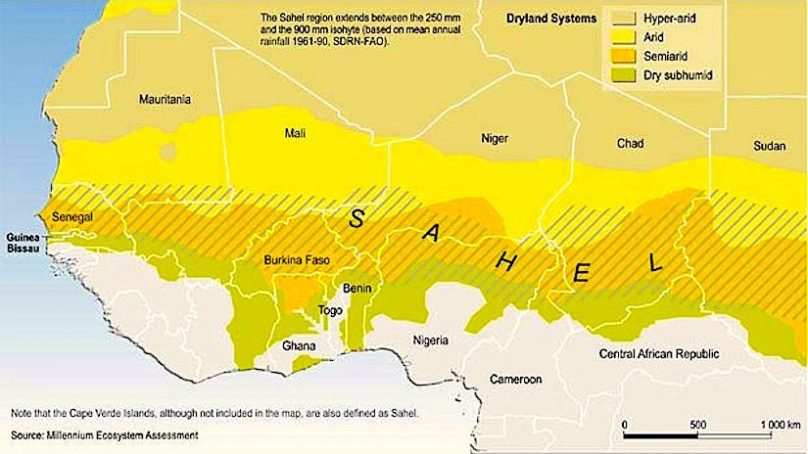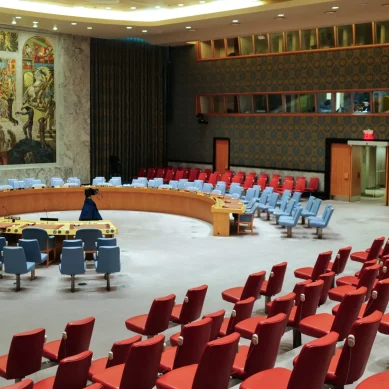
More than 100 European and African actors have signed a charter committing to the development of the agro-pastoralism in Africa, particularly in the Sahel. The charter is inspired by the resilience of Africans against coronavirus compared with other races.
Pastoralism is a key economic activity of the Sahel, a vast semi-arid region of North Africa, to the south of the Sahara, that forms a transitional zone at the south of the desert and comprises the northern part of the region known as Sudan.
The coronavirus crisis has revealed the resilient capacities of African agriculture, hence the desire to reinforce what is billed as natural resistance to Covid-19 that has killed hundreds of thousands in Europe, the America and Asia.
The mortality rate in Africa is comparatively low in spite of the fragile health infrastructure and lack of qualified personnel to cope with the sweeping infections.
Faced with the closing of borders, the drop of the purchasing power in urban areas, the major disruptions in the international market of raw materials and the availability of agricultural labour generally unaffected both by the virus and the traffic restrictions, the high demand for food products in cities has been a powerful incentive to the increase and the flow of local productions.
The original initiative aims to resize and strengthen agricultural cooperation between Europe and Africa while ensuring the protection of biodiversity, a global common good, according to the signatories.
“Under these conditions, more than ever, agriculture should be one of the main levers of development on the continent. In this respect, a paradigm shift appears indispensable. Thus, the modernisation of this sector, particularly through agro-ecology, digital agriculture, and social business, must once again become a priority. It is an economic, social, environmental, security and democratic issue,” they said in a statement.
To meet these multidimensional challenges, more than hundred operators from all parts of the agricultural value chain, launched on the sidelines of the One Planet Summit 2021, “I am Africa”.
A coalition of private and public actors have committed to the sanctuarisation of biodiversity, a global common good and to the development of sustainable agricultural sectors.
The multilateral initiative was formalised in the presence of the President of the French Republic, Emmanuel Macron, the President of Mauritania Mohamed Ould Cheikh El-Ghazaouani and Prince Charles of Wales.
Knowing that Africa represents an exceptional lever of growth, companies, employers’ organisations, African and European institutions in the agricultural and livestock sectors have decided to join forces to form a team with multiple expertises that are driven by the common desire to provide an appropriate response to this major issue.
With this shared ambition, the signatories of the charter intend to jointly prospect and develop value chains that meet precisely to African issues, the statement says.
Since co-development is at the heart of the ethics shared by the signatories, a significant part of these activities will be the responsibility of local actors, which is promoting technology transfers and the appropriation of the know-how necessary to the sustainable implementation of the agricultural and livestock production sectors envisaged by IAM Africa.
“The objective of the signatories, through their commitment to deploying this approach in most Africa, is to participate in the promotion of a strategy combining social, environmental and economic development in the service of prosperity but also the preservation of biodiversity and more generally the stability of the continent”, says co-founder of the initiative and deputy managing director of the Advens/Géocoton Group Karim Ait Talb.
The signatories have committed to participate in the achievement of the 2030 objectives of “the Great Green Wall”.
The Sahelian strip, the signatories say, is identified as one of the global hotspots of climate change. In this region, it is necessary to provide answers to the tensions on natural resources to meet the objectives of sustainable development and preserve biodiversity.
The structuring of agro-livestock value chains that encourage the deployment of agro-ecological practices and the creation of decent and sustainable jobs will be an important response to the adaptation of the region’s populations and to the mitigation of the effects of climate change, particularly in terms of migration flows and security challenges.
“The Presidential Council for Africa has been mobilised since 2018 for the structuring of the agricultural value chains in the Sahel and has conducted several missions to meet field actors in order to work on concrete solutions that have an impact on nutrition, on the creation of decent jobs and on the inclusion of vulnerable populations. IAM Africa is a new scheme where French, African and international companies who commit and are ready to invest in the agro-ecological sectors of the future,” says Wilfrid Lauriano Do Rego, partner of the initiative and Coordinator of the Council for Africa.
- A Tell report











